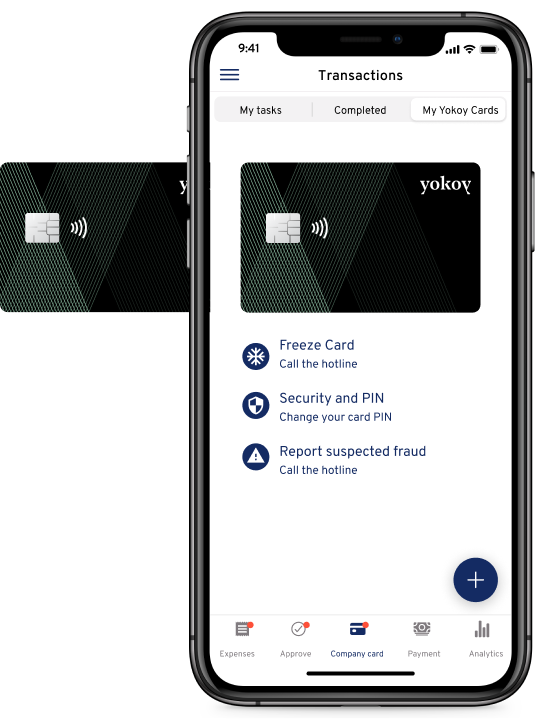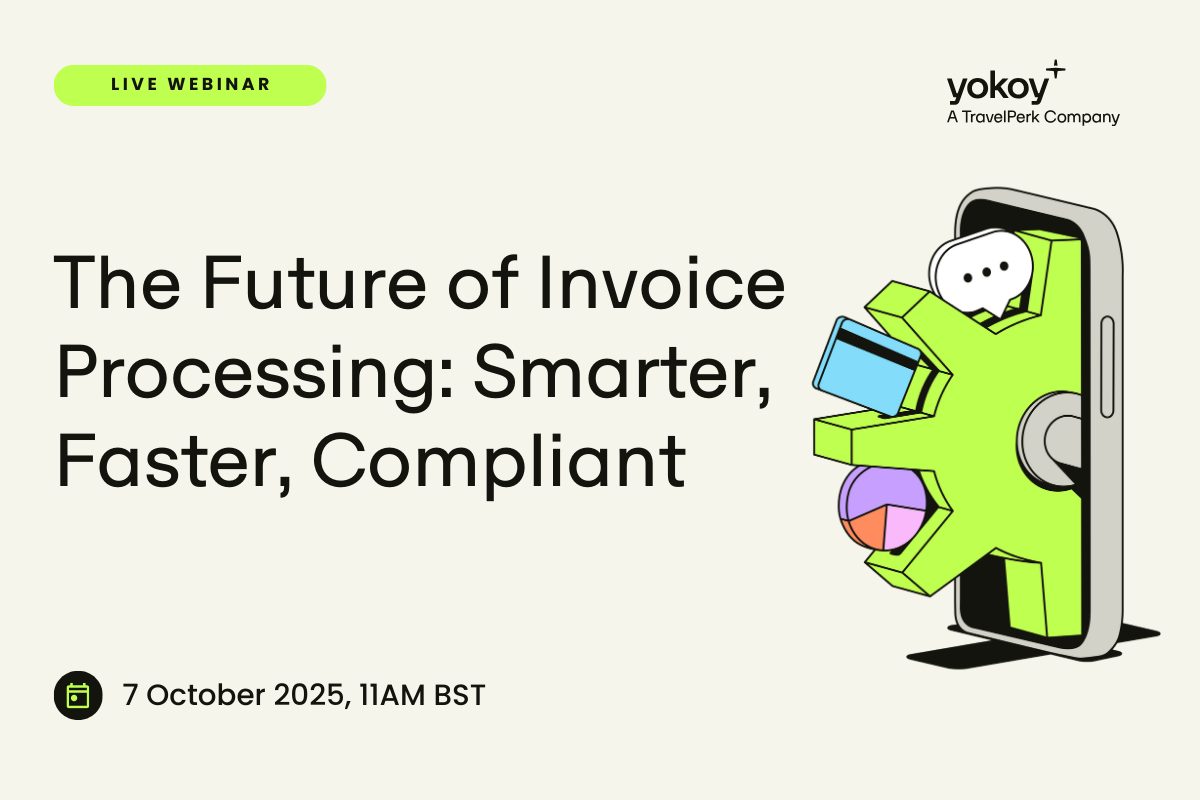Home / Navigating Regulatory Changes in Card Payments
Navigating Regulatory Changes in Card Payments
- Last updated:
- Blog

If you thought managing corporate card payments was tricky before, 2025 seems to be here to raise the stakes — again. With regulatory changes sweeping across the EU, UK, and beyond— including Anti-Money Laundering (AML) rules and cross-border payment regulations—finance leaders face new acronyms and challenges to navigate.
Whether meeting Strong Customer Authentication (SCA) standards, responding to stricter anti-money laundering checks, or proving digital resilience, businesses now operate in a payments world where compliance is increasingly complex. And let’s not forget the rising expectations around data security, fraud prevention, and environmental, social and governance (ESG) transparency.
But it’s not all red tape and risk. With the right strategies, modern tools, and a little help from AI and automation, CFOs can keep pace with change and turn these challenges into a competitive advantage. From real-time monitoring to automated policy enforcement, technology is opening up smarter, faster, and more secure ways to manage corporate spending.
The growing complexity of payment regulations
The global regulatory landscape is evolving fast, with frameworks like Payment Services Directive 2 (PSD2), AML, and FCA guidelines placing greater scrutiny on corporate card payments. As regulatory changes continue to reshape how payment services are delivered and monitored, businesses must stay informed to remain compliant and competitive.
New regulatory requirements impact everything from how financial transactions are authenticated to how personal data is secured. With growing pressure on data protection, transparency, and fraud prevention, failing to keep pace could lead to severe consequences — including financial penalties, disrupted payment processing, and reputational damage.
Today, real-time payments and global operations are essential to staying compliant. No business wants delayed settlements or strained relationships with providers, issuers, and fintech partners. That’s why some companies are turning to AI and automation to streamline compliance processes, reduce risk, and ensure every transaction aligns with all those fast-moving regulations.
By adopting smarter tools and keeping compliance at the core of financial operations, finance leaders can mitigate risk, protect growth, and stay ahead in the modern payments industry.
Yokoy Smart Corporate Cards
Pay the smart way
Simplify your card administration and gain real-time visibility and control over your global spend with Yokoy’s Smart Corporate Cards.

Key regulatory changes impacting corporate card payments in 2025
The regulatory landscape for corporate card payments is undergoing a significant transformation in 2025. Finance teams must navigate a growing list of regulatory requirements for digital infrastructure, risk management, and cross-border operations. Below are five critical areas shaping compliance strategies this year.
PSD2 and Strong Customer Authentication (SCA)
The second payment services directive (PSD2) remains a key regulatory framework reshaping how financial institutions, payment service providers, and businesses manage card payments from Mastercard or VISA. With stricter SCA requirements, companies must ensure that multi-factor authentication is in place across all payment methods to enhance fraud prevention and data security. Non-compliance risks declined transactions, regulatory scrutiny, and customer friction. To stay compliant while maintaining a smooth user experience, organisations must work with issuers and processors and leverage AI tools to automate identity checks and detect suspicious activity in real time.
DORA (Digital Operational Resilience Act)
The EU’s Digital Operational Resilience Act (DORA), in effect from 2025, is critical for businesses in the digital payments ecosystem. It requires firms managing corporate card payments to ensure resilience against ICT disruptions through regular testing, incident reporting, and secure handling of personal data and financial transactions. Finance leaders must evaluate their tech stack and work with reliable providers to meet these new regulatory changes. AI tools can support compliance by monitoring real-time vulnerabilities, managing incidents, and ensuring audit readiness.
Anti-Money Laundering (AML)
In 2025, updated AML directives across the EU and UK bring stricter scrutiny to Payment Service Providers (PSP), fintech platforms, and financial institutions managing corporate card payments. CFOs must adopt strong compliance processes to monitor transactions, identify high-risk activity, and ensure ownership and due diligence transparency. AI tools can support this by analysing real-time patterns, flagging anomalies, and maintaining a reliable audit trail — essential for meeting AML and safeguarding obligations.
New Cross-Border Payment Regulations
New cross-border payment regulations in the EU and UK standardise fees, boost transparency, and accelerate real-time card payments. Businesses must reassess relationships with PSPs, align financial transactions with local rules, and meet evolving reporting obligations in financial services. Failing to adapt may lead to delays or penalties. AI-powered platforms can streamline compliance by tagging spending by jurisdiction, currency, and tax, reducing errors and ensuring alignment with shifting payment regulations.
Corporate Sustainability Reporting Directive (CSRD) and ESG Reporting
The EU’s Corporate Sustainability Reporting Directive (CSRD) brings ESG disclosure into finance operations, including credit card or corporate card payments and payment services. Financial leaders must show how spending aligns with sustainability goals, covering procurement, travel, and other expenses. Meeting these demands requires strong data protection, traceability, and categorisation. Turning to automation to streamline ESG tracking helps corporations tag expenses by sustainability criteria and ensure initiatives like ethical sourcing and carbon reporting are auditable and compliant.
Ensuring compliance in card payments with AI and automation
As the regulatory landscape becomes more demanding, manual processes can no longer keep pace with the complexity and speed of regulatory changes. Businesses need agile tools that support accuracy, scalability, and efficiency. By embracing AI and automation, finance leaders can stay ahead of compliance processes, strengthen controls across card payments, and avoid costly pitfalls.
Automation of compliance checks
Manual reviews of financial transactions are slow and error-prone. Automation embeds compliance rules directly into payment systems, validating expenses in real time against internal controls and external regulatory requirements like PSD2, AML, and data protection. This reduces admin burden, improves accuracy, and ensures smoother, more reliable audits. It also frees finance teams to focus on higher-value tasks rather than chasing policy breaches or missing receipts.
AI-powered fraud detection
AI is transforming fraud prevention in corporate card payments by analysing large volumes of spending data across payment methods, spotting patterns and anomalies linked to policy breaches or AML risks. With advanced behavioural analysis, AI alerts finance teams to suspicious activity early, supporting consumer protection and compliance across the payments industry. It acts as an always-on safeguard that strengthens trust in your payment processes.
Real-time monitoring
In today’s regulatory landscape, real-time monitoring is essential. AI tools track expenses live, maintain detailed audit trails, and flag discrepancies immediately. Under regulations like DORA, this visibility helps ensure operational resilience, faster responses, and readiness for internal and regulatory reviews. With real-time data, teams can react to potential compliance issues in minutes — not days.
Real-time policy enforcement
AI can help to enforce payment policies at the point of transaction, blocking or escalating non-compliant spending in real time. Whether tied to ESG goals, region, or expense category, automation helps to enforce policies and align with internal controls and regulatory compliance. This reduces risks and saves finance teams from manual reviews post-purchase. This proactive way to keep financial control helps boost finance teams.
Cross-border compliance management
Managing cross-border compliance manually can lead to delays and errors. AI platforms streamline processes by tagging transactions with local tax codes, currencies, and rules—critical when working with PSPs, issuers, and processors. This improves reconciliation, reduces risk, and ensures alignment with global regulatory frameworks. By simplifying international payments, finance leaders can scale operations without scaling complexity.
Blog article
Simplifying Expense Management: How Corporate Cards Benefit Businesses of All Sizes
Although most corporate card programs offer cash back on transactions, these savings aren’t the main driver for companies who choose to equip their employees with business credit cards or debit cards.

Francesca Burkhardt,
Product Marketing
Intelligent, automated business card payments with Yokoy
When considering today’s payments landscape, think of Yokoy: The streamlined AI-powered platform offers an innovative approach to payment solutions, compliance checks and efficient audit-ready expense management. Whether navigating the complexities of PSD2, AML rules, or cross-border payment regulations, Yokoy simplifies the compliance journey with a single, secure platform for managing all financial transactions.
All payments in one platform: Yokoy centralises all payment services, uniting physical and virtual corporate cards, digital wallets, and reimbursement tools in one intelligent interface. This unified approach eliminates fragmented systems and supports complete oversight across the payments ecosystem. By consolidating data from multiple issuers, providers, and payment methods, you can gain end-to-end visibility while aligning with regulatory frameworks and streamlining reporting obligations across global markets.
Automated compliance checks: Manual reviews of corporate card payments are a burden in an era of increasing regulatory changes. Yokoy’s AI capabilities automate compliance checks by comparing each transaction against internal policies, external regulatory requirements, and data protection standards. This automation reduces the compliance workload, lowers the risk of human error, and ensures that each payment is categorised correctly, flagged, or approved based on the latest payment regulation.
Real-time spend data: With real-time transaction insights, Yokoy enables proactive monitoring and faster decision-making. Your finance team can track expenses as they happen, making it easier to spot anomalies, prevent overspending, and stay on top of audits. This capability is particularly valuable in meeting the demands of regulations such as DORA, which require transparent, responsive systems that support data security, fraud prevention, and operational resilience.
Custom work and approval flows: Your business operates differently from any other. That’s why Yokoy offers flexible, AI-supported workflows tailored to your organisational needs. Customisable approval processes ensure that every financial transaction aligns with internal policies and external compliance processes. Workflows can be configured to accommodate different departments, project codes, spending limits, or regional rules.
Built-in security: Security and data privacy are built into the foundation of the Yokoy platform. From PCI compliance to data protection and consumer protection standards, Yokoy safeguards sensitive personal data and business-critical financial information. Multi-layered authentication, secure integrations with payment service providers, and end-to-end encryption ensure peace of mind, even in high-risk environments. Combined with AI-powered threat detection, the platform is engineered to help companies prevent data breaches and maintain strong regulatory standing.
Next steps
Don’t let constantly changing regulations in the payments industry impact your business. Let Yokoy offer you a clear roadmap to help you stay ahead—penalty-free and future-ready. Book a demo today.
In this article
See intelligent spend management in action
Book a demoRelated content
If you enjoyed this article, you might find the resources below useful.


